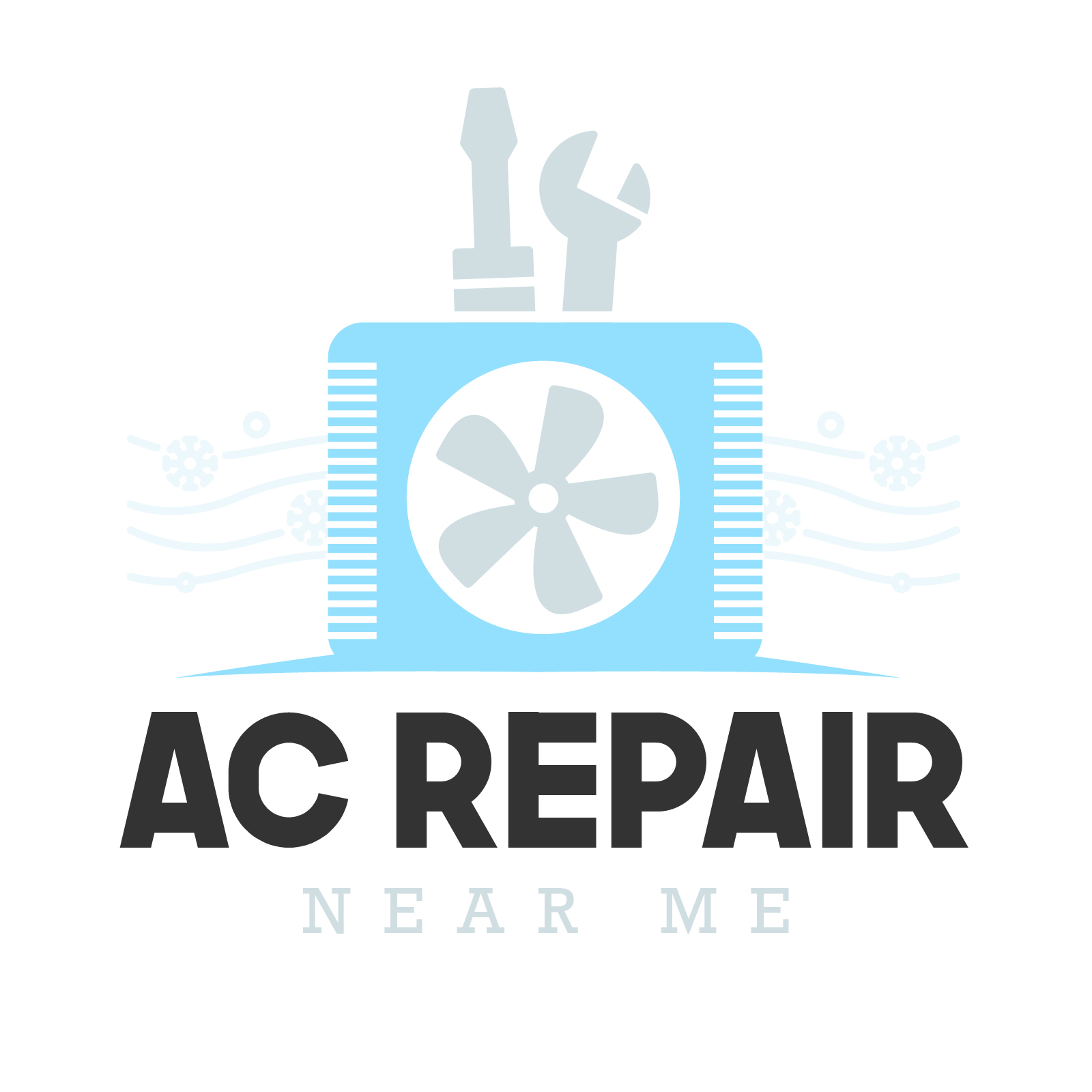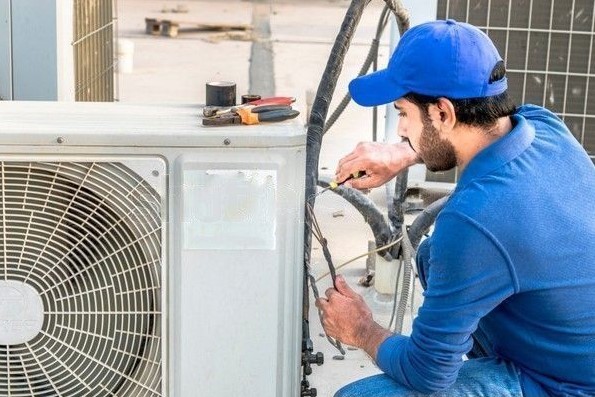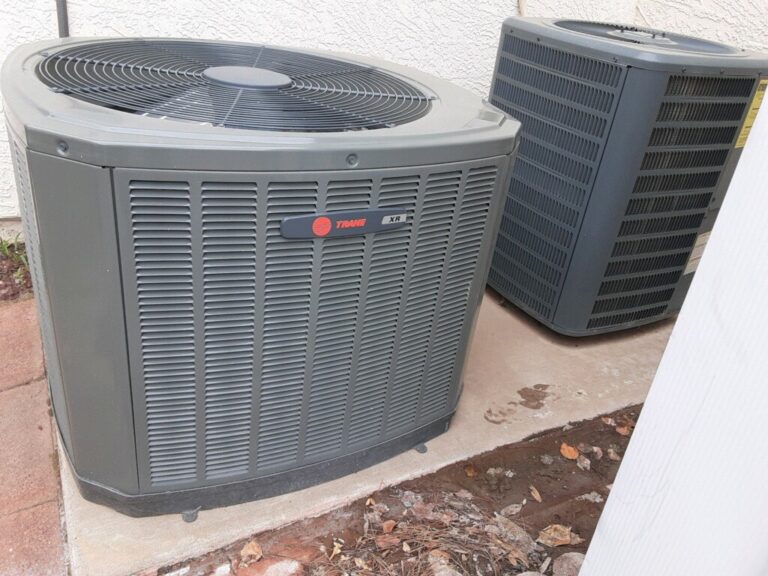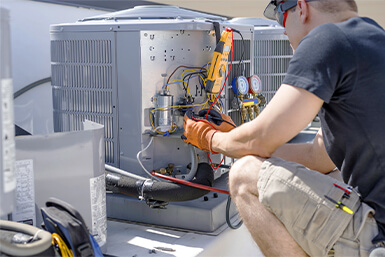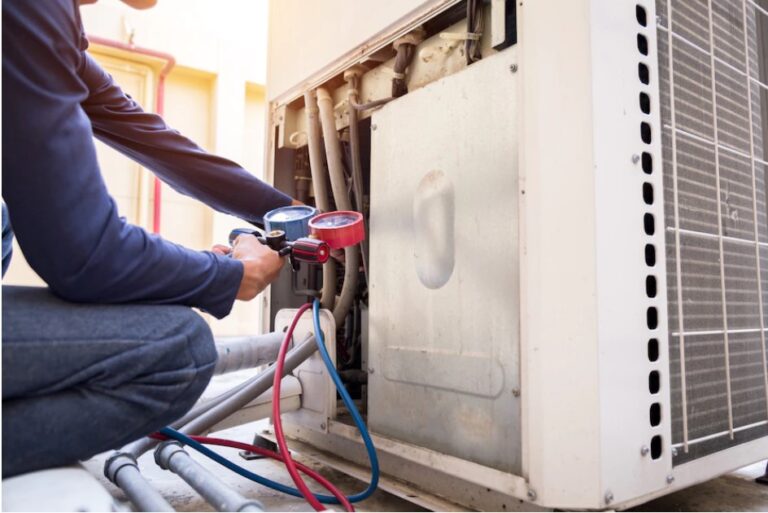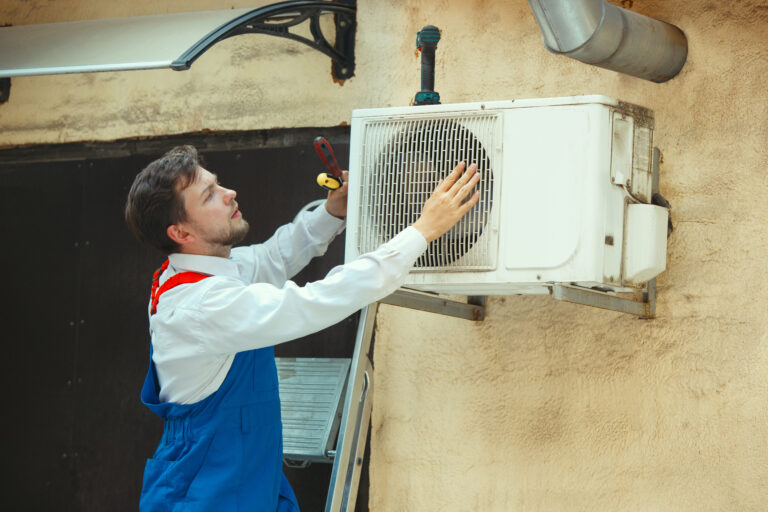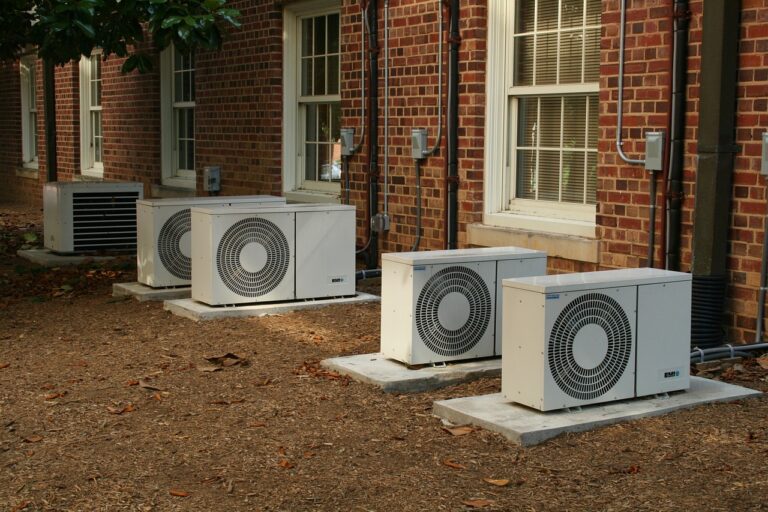Why is your air conditioner leaking water and How to Fix It
Hey there! I hope this post finds you well. If not, please bear with me as I work to rectify that. In the meantime, let’s talk about why your air conditioning is leaking water like a sieve.
It could be anything from a faulty seal on your unit to a cracked or missing condenser coil. But whatever the cause, if it’s leaking water then there’s a good chance you need to fix it before it causes any serious damage. So if you’re looking for advice on how to do that, keep reading!
Introduction
Why is Your A/C Leaking Water?
If you’ve ever found a puddle of water beneath your air conditioner, you know it can be a cause for concern. After all, water and electricity don’t mix! But before you call in the professionals, there are a few things you can check to see if the problem is as serious as it seems.
One possibility is that the drip pan (located under the unit) is simply full and needs to be emptied. If this is the case, you’ll need to turn off your AC at the thermostat, then locate and remove the pan so it can be drained. Be sure to put the pan back in place before turning your AC back on, or you’ll risk damaging your unit.
Another possibility is that your condensate line (the pipe that drains water from the drip pan) is clogged. This line can become blocked with algae or other debris, preventing proper drainage. If you suspect this might be the problem, take a look at the line to see if it’s clear; if not, you’ll need to clean it out with a brush or other tool before continuing use of your AC.
In some cases, a leaking AC unit may simply mean that there’s too much humidity in your home. When humid air comes into contact with cold coils in your AC unit, condensation forms and drips into the drip pan. If this happens frequently, it’s likely because your home isn’t adequately ventilated; opening windows and using fans can help reduce indoor humidity levels and prevent future dripping.
Of course, there’s always a chance that your AC unit is actually leaking refrigerant – but this should only be diagnosed by an HVAC professional who has experience handling these chemicals safely. Refrigerant leaks are fairly rare but can cause serious damage to both people and property; if you think this might be what’s happening in your home, don’t hesitate to reach out for help from an expert!
The Science Behind A/C Leaks
When your air conditioner is running, it collects moisture from the air in your home and drains it out through a small hole. But sometimes, that hole can get clogged with debris like dust or leaves. When that happens, the water has nowhere to go but back into your A/C unit, causing it to leak.
There are a few other reasons why your A/C might be leaking water, but a clogged drain line is the most common. Luckily, it’s an easy problem to fix. Just clear out the debris and you should be good to go!
The Three Main Reasons Your A/C is Leaking Water
If you’ve ever found a puddle of water around your air conditioner, you know it can be a cause for concern. After all, water and electricity don’t mix! But before you panic, it’s important to understand that there are several reasons why your A/C might be leaking water, and not all of them are cause for alarm. In fact, in some cases, a little water leakage is actually normal.
So why is your A/C leaking water? Here are three possible explanations:
1. Your A/C unit is condensing water vapor from the air.
This is the most common reason for an A/C to leak a small amount of water. You see, as your air conditioner cools the air inside your home, the warm air passes over the cold coils of the unit. This causes the moisture in the air to condense on the coils and drip into a pan below where it’s drained away.
2. Your A/C unit was installed incorrectly.
If your A/C is leaking a lot of water or if water is dripping from areas other than the drain pan (like from electrical components), then it’s likely due to an installation error. When an A/C unit isn’t installed level, or when its parts aren’t aligned properly, it can cause problems like this one down the road.
3 . There’s something wrong with your drain line .
The final possibility is that there’s an issue with your drain line—the pipe that carries excess water away from your A/C unit. If this pipe becomes clogged or blocked in any way, it can cause leaks (among other problems). Thankfully, this is usually an easy fix for an HVAC technician.
The Dangers of A/C Leaks
Your A/C unit is designed to keep your home cool and comfortable during the hottest months of the year. But what happens when your A/C starts leaking water? While a small amount of condensation is normal, excessive leaks can be a sign of a serious problem.
If you notice water pooling around your A/C unit, it’s important to take action right away. Leaks can cause extensive damage to your home and may even lead to mold growth. Keep reading to learn more about the dangers of A/C leaks and what you can do to fix them.
One of the most common reasons for an A/C leak is a clogged drainage line. Your A/C unit produces condensation as it cools your home. This condensation collects in a pan and drains out through a hose or pipe. If this hose becomes clogged, the water will back up and start leaking from your unit.
Another possible cause of an A/AC leak is a cracked evaporator coil. The evaporator coil is responsible for absorbing heat from inside your home. Over time, this coil can develop cracks and start leaking water onto your floor or into your walls.
If you suspect that your A/AC unit is leaking, it’s important to call a professional right away. They will be able to diagnose the problem and recommend the best course of action. In some cases, they may simply need to clear out a clogged drain line. But if there’s significant damage to your evaporator coil, you may need to replace it entirely
How to Prevent A/C Leaks
If your A/C is leaking water, it could be due to a number of reasons. The most common reason is that the unit is not properly maintained and the coils are dirty. Another possibility is that the drainage pan is full or blocked, causing water to back up into the unit. In either case, you’ll need to clean the coils and pan (if necessary) to prevent further leaks.
Another potential cause of A/C leaks is a Freon leak. Freon is the coolant used in A/C units, and over time it can degrade and cause leaks. If you suspect a Freon leak, you’ll need to have your A/C unit serviced by a professional.
Finally, if your home has high humidity, this can also cause condensation on your A/C unit, which may eventually lead to leaks. To combat this, you can use a dehumidifier in your home or make sure that your A/C unit’s drain line isn’t clogged.
How to Fix A/C Leaks
If you’ve ever come home to a puddle of water beneath your air conditioner, you know the sinking feeling that comes with it. You may wonder: why is my A/C leaking water?
There are a few reasons your AC may be leaking, but the most common one is simply due to condensation. Your air conditioner cools your home by pulling warm air from inside and blowing it over cold coils. These coils cause the water in the air to condense and drip down into a drain pan.
However, if there’s a problem with this drainage system, whether it’s clogged or damaged, that water can start to leak out. In some cases, leaks are caused by an ice buildup on the coils. This happens when the temperature outside is very humid and hot; as the unit pulls in warm air, it also pulls in more moisture than usual. The coils can’t handle all of that moisture and start to freeze up, which causes water to leak out as it melts.
Other times, leaks happen because of faulty installation. If your unit wasn’t installed properly or level, then gravity will cause any condensation to drip out rather than into the drain pan.
Luckily, most A/C leaks are easy enough to fix on your own. Start by checking the drain pan and making sure it isn’t full or overflowing; if it is, simply empty it out and see if that solves the problem. If not, then you’ll need to clean out the drain line using a wet vac or similar device (this process will vary depending on your model). Once you’ve done that, pour some bleach down the line to kill any mold or mildew that might be causing clogs further down; let it sit for awhile before running more water through line to flush everything out. Finally, check your outdoor unit to make sure there’s no debris blocking the drainage hole; trim back any plants or remove any objects that might be in its way.
If you’ve tried all of these things and are still seeing leaks, then it’s time to call in a professional AC repair person; they’ll likely need to replace some parts within your unit itself
